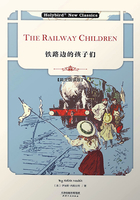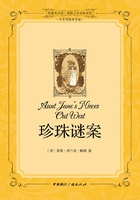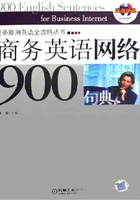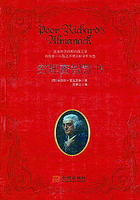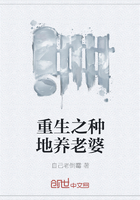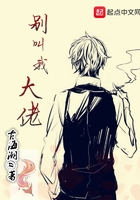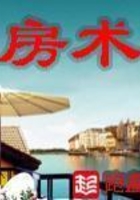Peng Pai kicked over the last meal brought to him by the jailors, and went out with Yang Yin, Yan Changyi and Xing Shizhen to receive his fate. It's said that the executioner's hands were too scared to do the job! A more trustworthy source states that before his execution, the Party's highest military commander Zhou Enlai was doing his utmost to come up with a cunning plan to spring him from prison, even trying to sneak in a resistance unit disguised as a film crew who would seize the prison by force. When it came to naught, Zhou Enlai still sought vengeance for Peng, ordering Communist agents under Chen Geng, later one of the PLA's first generals, to dig a shallow grave, find the informant Bai Xin, and put three bullets in his skull.
3
One evening in April 1929, a warship by the name of "Tiger of the Seas" dropped anchor in White Goose Pool, an area of the Pearl River where the water is especially deep. The lookout gazed intently, alert for threats from all directions. From time to time small boats would sail out to the Tiger and back, carrying impor-tant military and government figures. Sat in a cabin was Chen Jitang, recently appointed by Nanjing to take charge of military reorganisation in Guangdong, interviewing division commanders and important party members. As he raised anchor and sailed from Hong Kong to Guangzhou, he asked his numerologist brother Chen Weizhou and a few others to perform a divination, believing that whilst it was an assignment fraught with danger, he would be able to handle it.
Soon, thanks to the support of Chairman of the Kuomingtang Government Chiang Kai-Shek, generals in Guangxi and Guang-dong, as well as Kuomintang leader Hu Hanmin and the "Crown Prince" Sun Ke, son of Sun Yat-Sen, he finally replaced Li Jishen as Commander-in-Chief of the 8th Route Army. With power freshly in his hands, Chen set himself to the running of Guang-dong, on the one hand suppressing the Communist Party, on the other gradually distancing himself from Chiang Kai-Shek and laying the groundwork for a challenge to his authority. By 1931, he had installed himself as Commander-in-Chief of the 1st National Revolutionary Group Army, openly calling for independence for the two "Guangs" (Guangdong and Guangxi) in collaboration with Li Zongren and Bai Chongxi, and turned Guangdong into a de facto independent kingdom under the "white sun on a clear sky"flag of the Kuomingtang.
Chen's rule over Guangdong would last eight years. This was a unique situation in the Republic of China's history. In a few short years, due to Guangdong society's quick return to stability, Chiang's Nanjing government being preoccupied with rooting out Communism and fighting off warlords and therefore unable to extend its authority south, Guangdong's tax revenue, denomi-nated in "Canton dollars", was spent entirely within the province. With additional help from investments by overseas Chinese, the Cantonese economy grew like a sponge absorbing water. To this day, many Cantonese octogenarians remember the "Golden Age"fondly. It represented the largest-scale economic growth in the Republic's history, and was accompanied by public works proj-ects such as the Sun Yat-Sen Memorial Hall, the Yat-Sen Library, a Memorial Stele to Sun Yat-sen on Yuexiu Hill, the First Ever Bridge over the Pearl River, the Guangzhou City Government building, relocating Yat-Sen University (now the South China University of Technology) and the construction of a new port further up the Pearl River. He also planned to open a harbour at Huangpu Island. These classic examples of Cantonese architecture are put to good use even today.
Chen's Guangzhou also constructed roads according to modern engineering principles for the first time. Referred to by locals as "Open roads", today's Changdi Road, Zhongshan Road,[6] Beijing Road, People's Road and other such highways were all built in those years. Chen also aggressively encouraged manufacturing, which although born out of his régime's need for military materiel undoubtedly gave Guangdong the industrial base it had previously lacked. Though secure in Guangdong, Chen needed to expand his army if he was to take the fight to Chiang Kai-Shek and his armies in neighbouring Guangxi. In 1932, he renamed the Eighth Route Army "First Group Army", expanded it to a force of some 150,000, as well as developing a not ineffective air force and navy.
Even for Chiang Kai-Shek, this was a force to be reckoned with. The question of how to pay for this army, however, proved diffcult. Just like Li Hongzhang and Zuo Zongtang before him, he came up with the idea of a "Self-Strengthening Movement" and so, taking advantage of Hong Kong and Macau's proximity as well as the service rendered by many overseas Chinese, he found a pretext of saving the nation via industry. He planned and constructed many manufacturing enterprises under the "province-run" label, and in Dongguan, Huiyang, Shitou, Shunde and Jieyang built sugar refin-eries. For a while his prestige soared, and Guangdong was seen as a flower blooming everywhere.
Interestingly, that period also saw "development areas" set up:Chen renamed Guangzhou's Xicun area "the Shengying Xicun Industrial Zone" and built several large factories in concentration there. The development of industry stimulated the commercial and service sectors; it is reported that the Southwest China Air Company, based out of Tianhe military airfield, was China's first commercial airline founded by public money and run entirely by Chinese, with flights to Hong Kong, Vietnam, Guangxi and all over Guangdong. This all gives some idea of the level of development Guangzhou enjoyed at the time.
On the evening of the 28th of January 1932, Shanghai's Zhabei District came under attack from an artillery barrage that lasted several days. Fifty thousand blood-soaked Cantonese troops from Guangdong's 19th Route Army held out against a sudden attack from 100,000 crack Japanese troops, inflicting heavy losses on them. Japanese headquarters switched generals three times in search of a victory, further cementing the will of the Chinese (and particularly the Cantonese) to resist. Within a month, overseas Cantonese had contributed over four million silver yuan, and more than ten aircraft came from ethnic Chinese in the Philippines. But the 19th Route Army's resistance never received the support that was close at hand from Chiang Kai-Shek, and under sustained attack from the Japs,[7] running low on rations and ammunition, they were forced to retreat from Shanghai. Chiang Kai-Shek soon after signed the humiliating Shanghai Ceasefire Agreement. The mistreated 19th Route Army rose up in protest against Chiang in a remote corner of the southeast, but without support was defeated and disbanded.
The defeat of the 19th Route Army was a huge blow for Chen. After the ceasefire, he put out a nationwide call for anti-Japanese resistance, holding high the banner of nationalism, drawing people into his contention against the passive Chiang Kai-Shek, but he himself was no innocent; he had welcomed Japanese military advi-sors and received Japanese arms. His excuse was a passage straight from Te Art of War:"If you know the enemy's forces and your own, you need not fear a hundred battles", declaring that he needed to build his strength in order to turn Guangzhou into a genuine base of anti-Japanese resistance. Chen knew that Hong Kong, Macau and overseas Chinese businessmen offered a vital source of funds, and so exerted every effort towards winning them over.
On the 15th of February 1933, Guangzhou was bedecked with lanterns and banners as Chen orchestrated two simultaneous cele-brations: one for the completion of the Huanan Bridge, the first ever built over the Pearl River at that width; another for the Guang-zhou Trade Expo, held on Yuexiu Hill to show off the quality of Cantonese manufactures. Chen had carefully prepared everything in advance, sending representatives to Hong Kong, Macau and countless places abroad to make contacts and invite them to visit Guangzhou and take part in the first ever "Hong Kong-Macau-Overseas Chinese Returning Delegation", attended by over a hundred of the great and the good from outside China.
Using his fame as Commander-in-Chief of the National Revolutionary Army's 1st Group Army and head of the Guang-dong Provisional Government to draw them in, Chen hosted lavish banquets which he personally attended to drink with guests, exchanging toasts until the early hours of the morning. He afforded his guests great respect, repeatedly instructing his generals to ask them their suggestions for further improving the province's economy, and tell them encouraging stories as examples to loosen their pursestrings. They became the "Global Chinese Union", created specifically to encourage investment from Hong Kong, Macau and abroad. In 1933 alone, 84.26% of all outside investment by overseas Chinese came to Guangdong, and that's only going by the ledger sheets of banks; the real figure, including physical money sent over by relations abroad, may well be signifi-cantly bigger. The "golden age" of the Cantonese economy was well underway.
At Xihaokou, on the northern bank of the Pearl River, towered a hotel tower built by overseas Chinese investment: the first skyscraper in China then. It became a local symbol, looking down on China for more than twenty years. At the same time, the old stories about Guangdong-the opium, the gambling, the epidemic of prostitution-remained as true as ever.
It aroused the anxiety of Chiang Kai-Shek in Nanjing, who had repeatedly ordered Chen to send out troops against the CCP in nearby Jiangxi Soviet, but Chen had seen through Chiang's "two birds with one stone" tactic of getting someone else to do his dirty work, then reaping the rewards for himself. Eventually with no alternative, he sent Yu Hanmou northwards to "attack"; his subordinate Li Yangjing marched in as far as the Yunmen Ridge in the Central Soviet's Huichang County, then stopped and simply held position. The attack was a ruse, done entirely for the sake of appearances.
One day in September 1934, in the Xunwu mountainous area on the border between Guangdong and Jiangxi, the Guangdong Army escorted two sedan chairs through the maze of mountains that formed the front lines, berating any checkpoint guards who dared question them: these were guests of the commander, by what right was their passage being obstructed? Only the staff offcers and top brass who received the guests at Luotang Town knew that in those sedan chairs were secret envoys from the CCP Red Army: the top political commissars and commanders of the armies at the border He Changgong and Pan Hannian, chiefs of the Red Army's intelli-gence apparatus. In their hands was a letter of negotiation for Chen written by CCP's Red Army's Commander-in-Chief Zhu De's own hand. In a small building they discussed matters for three days and nights before finally agreeing on an instant ceasefire, the sharing of intelligence, an end to the Kuomintang blockade, the establish-ment of relations between the two sides and the reciprocal right to march through the other side's territory when necessary. After the agreement was ratified by both sides half a month later, the CCP Central Committee deciding to abandon Jiangxi Soviet and begin the 10,000-kilometre Long March.
Chen honoured the agreement, appearing to fight the Commu-nists but in fact letting them go, allowing them to march through his lines and away into the interior. He also gave the Red Army a thousand cases of ammunition, which proved a huge help. The incensed Chiang Kai-Shek sent a telegram:"Your failure to act, allowing the Reds to escape, is the darkest day in the history of the Chinese Revolutionary Army!" Externally, Chen resisted the pres-sure put upon him by Chiang's government; internally, he used it to justify measures that intensified economic growth and strength-ened his own control over the Guangdong Government. Although the province's economy was booming, the benefits were not trick-ling down; wealth disparity became even greater, and discontent began to grow amongst the working class. In 1934, Chen executed the leader of the "Guangzhou Left-Wing General Alliance" Tan Guobiao and five others, discovering that in the domain he had built for himself was a powder keg waiting to go off.
Hoping to pull the rug out from under the secessionist cause, Chiang took advantage of the death of Kuomintang elder statesman Hu Hanmin and stripped Chen of his military powers. As "King in the South", Chen was not about to let Chiang rob him of all he had created in Guangzhou, declaring a policy of "Oppose Chiang, Resist Japan", allying once more with Li Zongren and Bai Chongxi, and then in 1936 (the so-called "June 1st Incident") launched the "Northern Anti-Japanese Campaign." In fact, one of the main factors in his decision was his brother Weizhou's "divinations";one evening in May 1936, at Chen's mansion in Meihua Village in Guangzhou, the atmosphere was tense and silent as the Chen brothers awaited a message from the spirits. After they showered and lit incense that filled the air, Weizhou allowed the spirits to guide his hand and write the future. His brush wrote four charac-ters, which they took to mean "do not waste this opportunity."
Encouraged by the spirits' endorsement, Chen formed an alli-ance with his local rivals and led them north. But Chiang acted fast. On the one hand he sent a huge army to meet Chen, on the other hand bribing Chen's key subordinates, among them Yu Hanmou and Li Hanhun, to come over to his side, bringing with them the pride of Chen's army-his entire air force of some 70 or 80 aircraft defected north. Chen knew the game was up and that he had no means of resisting, despondently retreating to exile in Hong Kong. The "King in the South" was no more, and the Guang-dong economic miracle was brought to an end. Perhaps Chen had simply misread the spirits' message; read differently, its prediction was still accurate. The character "Ji" did not refer to "Ji Yu"- a favourable opportunity as he had understood it. Rather it referred to "Fei Ji"- aeroplanes. The prediction was really "do not lose your air force"!
The short-lived golden age vanished like smoke in the breeze,leaving only a few architectural reminders: standing as ever on the banks of the Pearl River, remnants of a vanished dream.
4
A great pillar of smoke rose high into the air, flames following it up into the sky. Blood covered the ruined walls, burnt corpses and viscera hung from the trees. The people of Guangzhou were terrified, fleeing the city in a mad panic. This was the 22nd of September, 1937. Under the relentless attacks of the Japanese bombers, Guangzhou had suffered terribly. From August 1937 to the end of 1941, over 19,000 sorties were flown over Guang-dong, the province that suffered the worst aerial attacks of the war, devastating 76 counties and cities and killing innumerable soldiers and civilians.
Let us return to that small village in eastern Guangdong's Lufeng County, and see how the war had changed the life of little Muxiang. In late autumn, fourteen years after the revolution failed, Axiang was nine, and had started at a new school (having previously been tutored). Under the Kuomintang government, underground Communist organisations in the province had sent cadres to Axiang's region to work on reestablishing the Party and resisting the Japanese, and the best cover for them was as teachers in the locally-run schools. Unlike the Communists, when the National-ists were in charge government only reached down to the county level; villages like Axiang's were still largely self-governed by local gentry. Village teachers were therefore often secretly infiltrators for the Communist and anti-Japanese cause. In 1943, Communist Party member Xie Gu quietly took up a post in Duimen Village, and created a Party base under the cover of founding a new-style school.
When Axiang had a private tutor, he'd often have to break off from studying to work, occasionally finding a few edible wild plants or sweet potato roots to ease his hunger. Then in 1944, Xie Gu was formally taken on as a teacher in Duimen Village and changed the situation. Once established, the school was in high demand; even though there was only one teacher, it offered "new"education (as distinct from a traditional education in the Confu-cian classics), and Xie was a talented teacher. Soon he had over 40 students, most of them from other villages. The underground Party was taking advantage of the new schools, installing its members as teachers or headmasters in schools in Hekouwei, Angtang, Zhaizili, Angtianhu, Datang, Chuanlongbei, Gaotan and Beihu.
It was Xie who first noticed Axiang's talent. He didn't often speak, but was clearly very hardworking, with as thorough an understanding of the Four Books and Five Classics as could be expected of a child his age. His class background was also a reason why he caught Xie's attention. Xie's began spreading the revolution by telling stories and gauging students' reactions, sifting out which students were likely to be receptive. At the time, older and younger students were separated into two classes. The lessons given to the younger class came from the Kuomintang's textbook, with a certain amount of editing and in-class criticism done by Xie where litera-ture, history, citizenship and the "Three People's Principles" were concerned. At the same time, supplementary reading came from the works of Lu Xun and Maxim Gorky. The older class, of which Axiang was a member, made no use of the textbook, using only materials printed by the Party underground. There was no text-book; lessons were written on the blackboard and students were not allowed to make copies. After class the board was wiped clean.
Music class was likewise rich with publicity, based mostly around the teaching of revolutionary and anti-Japanese songs. Through Xie's teachings, students' minds slowly turned against the government. Axiang was one of the best in his class, performing short anti-Japanese skits, playing the erhu and dizi[8] as well as singing very well. The school organised a choir and a theatre troupe, camping trips, singing competitions and speech competi-tions one after the other.
The local country landlords working in place of the government soon found out about the school's "unorthodox activities" and cried havoc, convinced that teachers like Xie Gu could only lead to trouble. Xie had only taught at the village for a relatively short while before he was fired. Fortunately, he was replaced by an even more ardent infiltrator form the underground named Xie Guol-iang. He taught there for two years before being forced to leave, but by that time his endeavours had already born fruit. Three bony students left with him, amongst them Axiang. By now Axiang was fourteen, and this was the first time he had left home. Under the pretence of studying, he went to the school in Datang with Xie to continue working for the Party. One of the two who went with them was named Xie Wei. Xie Wei and Axiang were the best of the Young Pioneers into which Xie Guoliang had spent the last two years moulding his students.
By this time Xie Guoliang was preparing for the armed struggle. In Datang he created the Xie Clan Autonomous Committee, and sent people all over to acquire guns, using the clan's name to prepare for resistance against the government. All those in the area with the same surname had to contribute some grain. Xie Guol-iang's "soldiers" were not all students; a local martial arts instructor was also drawn in, offcially as Xie's bodyguard but in fact helping train the troops into an army.
Events were also progressing in Hong Kong. Zeng Sheng, a student leader at Yat-Sen University when Chen Jitang had been in power was by now the commander of the East River Column. When the Japanese army seized Hong Kong, Party infiltrators had followed right behind them, the first Communist troops to ever be stationed in Hong Kong. At Zhou Enlai's direction, they rescued several thousand international sympathisers, democrats and men of letters, as well as Kuomintang generals and their families (including Chen Ce and the wife of Yu Hanmou, both of whom had formerly been merciless in their pursuit of Communists). In October 1944, a representative of the USA's 14th Airborne Regi-ment arrived in the headquarters of the East River Column, looking to co-operate on setting up communications posts and joint broadcasting stations, intelligence gathering and weather information. Yuan Geng, proficient in English, was selected to lead an intelligence network of over 200 people in collaboration with the Americans, an undertaking for which many underground Party operatives lost their lives.
As Yuan Geng, later in charge of selecting trial regions for China's Reform and Opening Up, recalled:"the Americans at the time sent out several teams to anti-Japanese Communist bases but only two reached their destination: one to Yan'an under David Barrett, and the other to the East River Column. The latter group had a strategic radio specially shipped in to the South Chinese coast and constructed onsite. The outstanding cooperation expanded the East River Column's seven detachments into an area of opera-tions stretching from Shenzhen in the West to Shantou in the east, scouting suitable locations for an American amphibious assault. Soon after, the US discovered that a crack Japanese detachment nicknamed 'Billowing Thunder', previously stationed in a line from Wuhan to Changsha, had suddenly moved to an unknown loca-tion."
"It was our Dongguan listening station that first found out what happened -'Billowing Thunder' was moving at night, its radios switched off, forming a defensive line on the east Guangdong coast in an attempt to prevent Nimitz's fleet from landing. We used the American strategic radio to relay the message to Admiral Nimitz, who changed the deployment and location of the landings post-haste."
Amongst the guerrilla armies were the "Young Devils"- chil-dren from ten to fifteen years old. Amongst them, a slim young man in the troop stationed around the Guangdong-Jiangxi-Hunan triple border. Speaking the dialect of Chaoshan, a region on the border of Guangdong and Fujian, and wearing the same simple clothes as everyone else there was nothing eye-catching about him, yet everyone called him "the student". There were hardly any university students in the guerrilla armies, and this was one of the best students from Sun Yat-Sen university, none other than Lin Ruo, who would later become the first Cantonese Provincial Secre-tary during the Reform era.
5
In the summer of 1946, civil war raged throughout China. Xie Guoliang, for so long keeping his powder dry in the mountain village of Datang, finally received the order to take such students as he could trust into the mountains and begin the guerrilla fighting!
As the year's end approached, in cold wind and icy rain, young Axiang suddenly returned home from Datang to say goodbye to his mother. Li Chun trusted that her son was doing the right thing for a noble cause, holding his hand as they parted, telling him "As you set to your work, just make sure you do it well and get enough to eat."As she saw him out of the door, Axiang reassured her:"Don't worry, I'll do my best." She wanted to give him some money to spend along the way, or a new shirt to wear, but had nothing more to give.
Axiang was fourteen that year. Not long after he left, the land-lord in Duimen village let it be known that a Commie had been caught in the sugar cane forest and beheaded. Li Chun was beside herself with worry, rushing back to ask Axiang's eldest brother whether he'd heard anything. All his brother could do was reas-sure her that it was probably a lie. But not long after, the second brother also joined the Communists. He didn't go to the moun-tains, instead turning the house opposite into the Party's secret means of communication with the outside world, and Axiang's mother joined him to work there.

